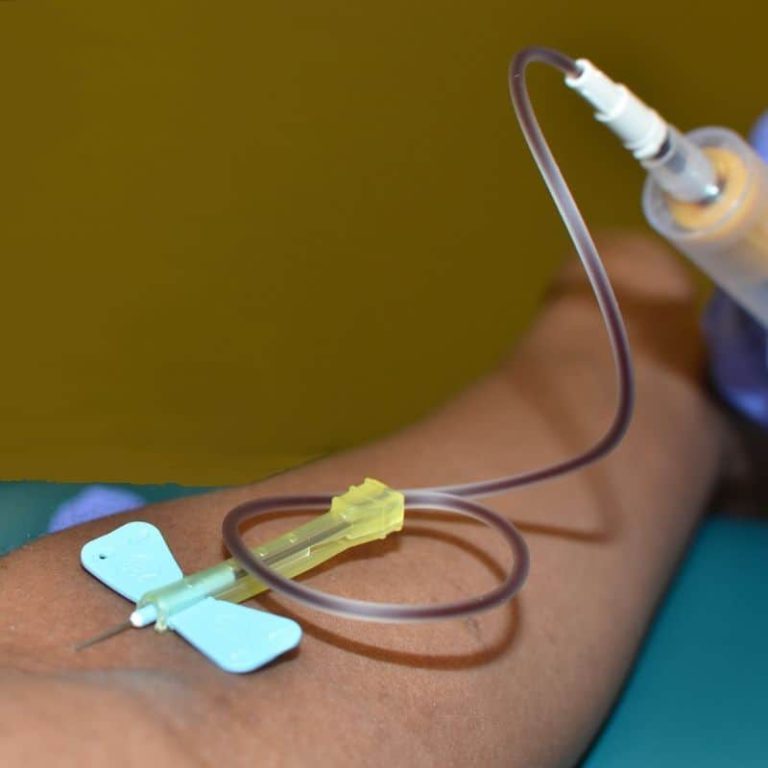
Commonly referred to as “blood sugar tests,” glucose tests often require fasting beforehand to ensure accurate results. Your doctor could order glucose tests if you are a new patient or to evaluate how your body tolerates insulin based on your family history and symptoms.
Blood glucose testing is commonly used to evaluate how the body manages sugar and identify potential metabolic issues. One of the most common questions patients have is whether fasting is required—and what results are considered normal. Understanding how fasting and non-fasting glucose tests differ can help you interpret results more accurately and know what to expect before testing.
Below, we review what glucose tests or Metabolic Panel Tests are, why you might need one, what the results mean, and how results can change depending on fasting versus non-fasting conditions.
What is a Glucose Test?
All glucose tests screen for diabetes and pre-diabetes by measuring glucose (or sugar) levels in the patient’s blood. Doctors may order a routine glucose test if you present with symptoms of diabetes or its risk factors. These include:
- Being overweight
- Being over the age of 45
- Having immediate relatives (parents or siblings) who have been diagnosed with diabetes
- Being a member of a minority with an increased risk of diabetes, including African American, American Indian, Asian, Hispanic/Latino, and Pacific Islander
- Having high blood pressure, defined as 140/90 or more
- Having high triglycerides (more than 250 mg/dL) or low HDL (less than 25 mg/dL)
- Being a woman who has been diagnosed with gestational diabetes
- Having an inactive or sedentary lifestyle, defined as exercising fewer than three times per week
- Having PCOS, also known as polycystic ovary syndrome
Types of Glucose Tests
There are several types of glucose tests your doctor may order. They each have different fasting requirements and procedures. Here is a list of most of the tests that you will encounter.
Fasting Blood Glucose Tests – The most common test for diabetes is a blood test measured after the patient has fasted (meaning eating and drinking nothing but water) for at least 8 hours. A reading of 126 mg/dL is an indication of the possibility of diabetes while 100 mg/dL is considered normal. Anything in-between is considered “pre-diabetic,” which is a risk factor for diabetes but can be reversed.
Oral Glucose Tolerance Tests – These tests also require an 8-hour fast. The test involves taking a blood sample, then drinking a liquid filled with sugar and waiting at the office. After two hours (best bring a book or a fully charged phone), the health care practitioner will take another sample. A reading of 200 mg/dL or higher is considered a diabetes diagnosis.
Oral Glucose Challenge Tests – This test does not require fasting and checks pregnant women between 24 – 28 weeks into their pregnancy for gestational diabetes. Like the oral glucose tolerance test, it involves drinking a sugary liquid and having a blood sample taken before and after, whereby 130 mg/dL or higher is considered a potentially positive diagnosis.
Random Blood Glucose Tests – If you present with severe symptoms associated with diabetes, a doctor may order this test without requiring fasting. A result of 200 mg/dL or higher is an indication of diabetes.
A1C Tests – A1C tests are non-fasting glucose tests that measure your levels over 3 months. A1C levels are averaged into a percentage that will be 5.7% or lower if you’re normal or 6.5% or higher if you have diabetes.
Blood Glucose Meters – These tests can be conducted at home. Ask your doctor how often you should test, such as before a meal, and report your results. These tests do not require fasting.
Fasting vs Non-Fasting Results
The fasting blood sugar normal range for most adults is 70–99 mg/dL, while levels between 100–125 mg/dL are considered prediabetic and 126 mg/dL or higher may indicate diabetes.
Since glucose is regulated by metabolic processes, the things you eat and drink affect your blood sugar levels naturally. Anyone, even people without diabetes, will have a raised glucose level after eating. Fasting blood sugar tests are a way for your doctor to get a baseline of the amount of glucose your body stores without eating.
For fasting blood sugar levels, less than 100 mg/dL is considered normal, 100-125 mg/dL is considered elevated or prediabetic, and 126 mg/dL and above is considered the primary indicator for diabetes.
Depending on how the test is conducted and what it measures, however, fasting may not be necessary. Some of the tests mentioned above, such as a random blood glucose test, do not require fasting because the test presumes the presence of diabetes severe enough to show up even in non-fasting conditions.
Remember to ask your doctor about whether your planned tests require fasting and whether the medications and supplements you take apply to your fast. Do not stop any medications or change your diet without speaking with your doctor first.
Speedy Sticks is a mobile concierge phlebotomy service that provides at-home blood draws and on-site diagnostic/health screenings for businesses and individuals. One of these tests is a glucose/metabolic panel test which can be performed by one of our specialists. Book an appointment today to find out your glucose levels.
If your provider has ordered a fasting or non-fasting glucose test, Speedy Sticks makes the process easier with convenient at-home blood draws. Our licensed professionals collect your sample safely and deliver it to a certified lab, so you don’t have to visit a clinic.
*This content is for informational purposes only and is not meant to replace consulting with a healthcare professional. Please consult with your primary care physician or healthcare provider before engaging in any services offered by Speedy Sticks.
What Is a Normal Fasting Blood Sugar Range?
A normal fasting blood sugar level is typically between 70 and 99 mg/dL. Readings between 100 and 125 mg/dL may indicate prediabetes, while consistent levels at or above 126 mg/dL can be a sign of diabetes.
How Non-Fasting Glucose Results Differ
Non-fasting glucose tests are taken regardless of recent food intake. Because blood sugar naturally rises after meals, non-fasting results are typically higher and more variable. While they can still provide useful information, fasting results are often preferred when evaluating overall glucose regulation or screening for diabetes.
**These are approximations, and experts disagree on some values. Consult your healthcare provider for recommendations suitable for you. It is also important to ensure the levels are given in the same measurements, such as mg/dL, etc.





